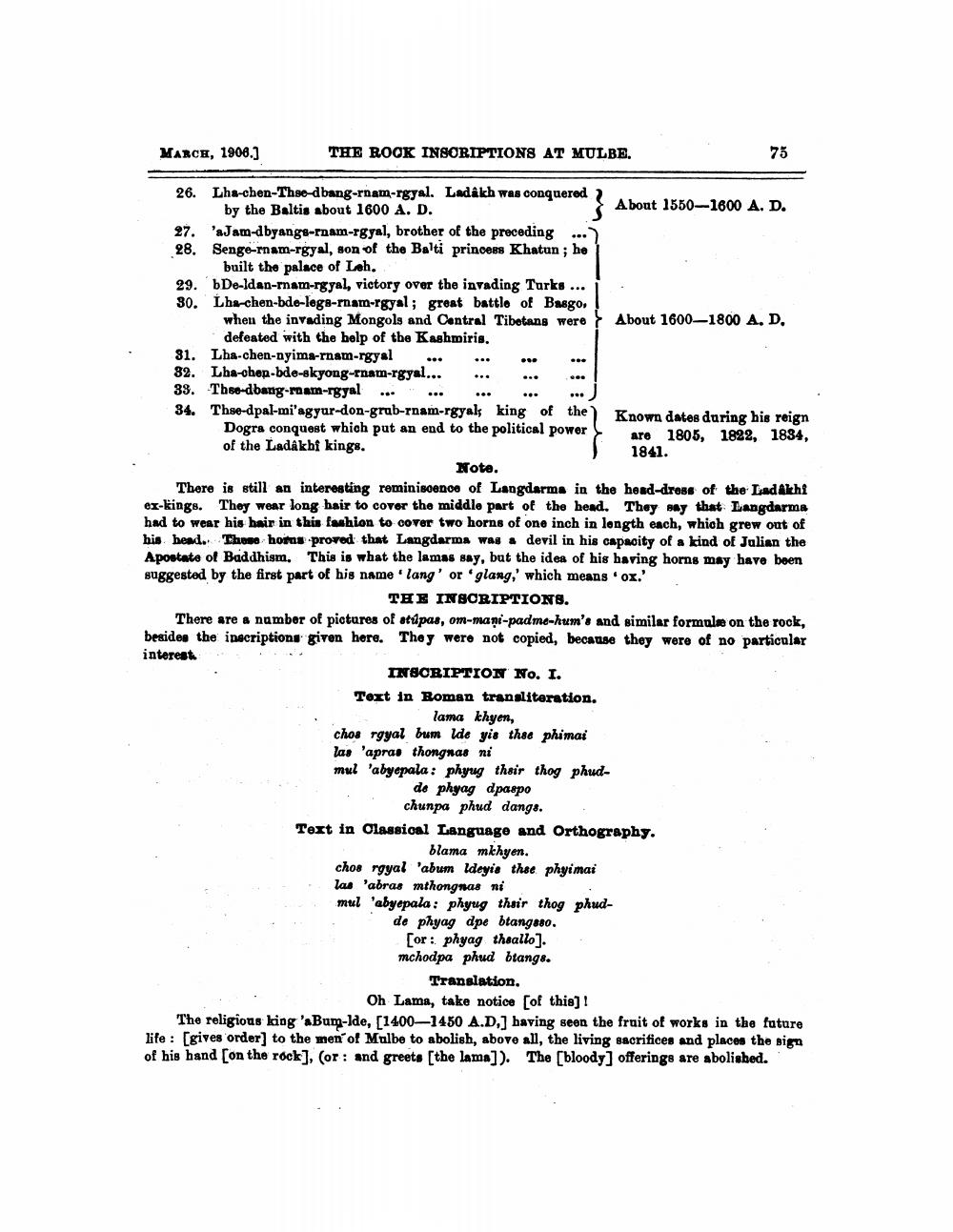________________
MARCE, 1908.)
THE ROOK INSORIPTIONS AT MULBE.
26. Lha-chen-Thse dbang-rnam-rgyal. Ladakh was conquered 2 .
About 1550-1600 A. D. by the Baltis about 1600 A. D. 27. 'aJam-dbyangs-rnam-rgyal, brother of the preceding ... 28. Senge-rnam-rgyal, son of the Balti princess Khatun; he
built the palace of Lah. 29. De-ldan-mam-rgyal, victory over the invading Turks ... i 80. Lha-chen-bde-legs-mam-rgyal; great battle of Basgo,
when the invading Mongols and Central Tibetans were About 1600-1800 A.D.
defeated with the help of the Kashmiris. 31. Lha-chen-nyima-ram-rgyal 82. Lha-chep-bde-skyong-rnam-rgyal... ... 33. Thse-dbang-ram-rgyal ... ... ... 34. Thse-dpal-mi'agyur-don-grab-rnam-rgyak king of the) Known dates during his reign Dogra conquest which put an end to the political power
are 1805, 1822, 1834, of the Ladakhf kings.
1841.
Note. There is still an interesting reminiscenoo of Langdarms in the head-dress of the Lad Akhi ex-kings. They wear long hair to cover the middle part of the head. They say that Langdarma had to wear his hair in this fashion to cover two horns of one inch in longth each, which grew out of his head. Thomo horns proved that Langdarma was a devil in his capacity of a kind of Julian the Apostate of Buddhism. This is what the lamas say, but the idea of his having horns may have been suggested by the first part of his name 'lang' or 'glang,' which means.ox.'
TEE INSCRIPTIONS. There are a number of pictures of stúpas, om-mani-padme-kum's and similar formule on the rock, besides the inscriptions given here. They were not copied, because they were of no particular interest
INSCRIPTION NO. I. Text in Roman transliteration.
lama khyen, chos rgyal bum Ide yis thee phimai las 'apra, thongnas ni mul 'abyepala: phyug their thog phud
de phyag dpaspo
chunpa phud dangs. Text in Classical Language and Orthography.
blama mkhyen. chos rgyal 'abum Ideyis thee phyimai las 'abras mthongnas ni mul 'abyepala: phyug thair thog phud
de phyag dpe btangaso.
[or: phyag thaallo]. mchodpa phud btange.
Translation,
Oh Lama, take notice [of this)! The religious king 'Bum-lde, [1400-1450 A.DJ having seen the fruit of works in the future life: [gives order) to the men of Mulbe to abolish, above all, the living sacrifices and places the sign of his hand (on the rock], (or: and greets [the lama]). The (bloody] offerings are abolished.




